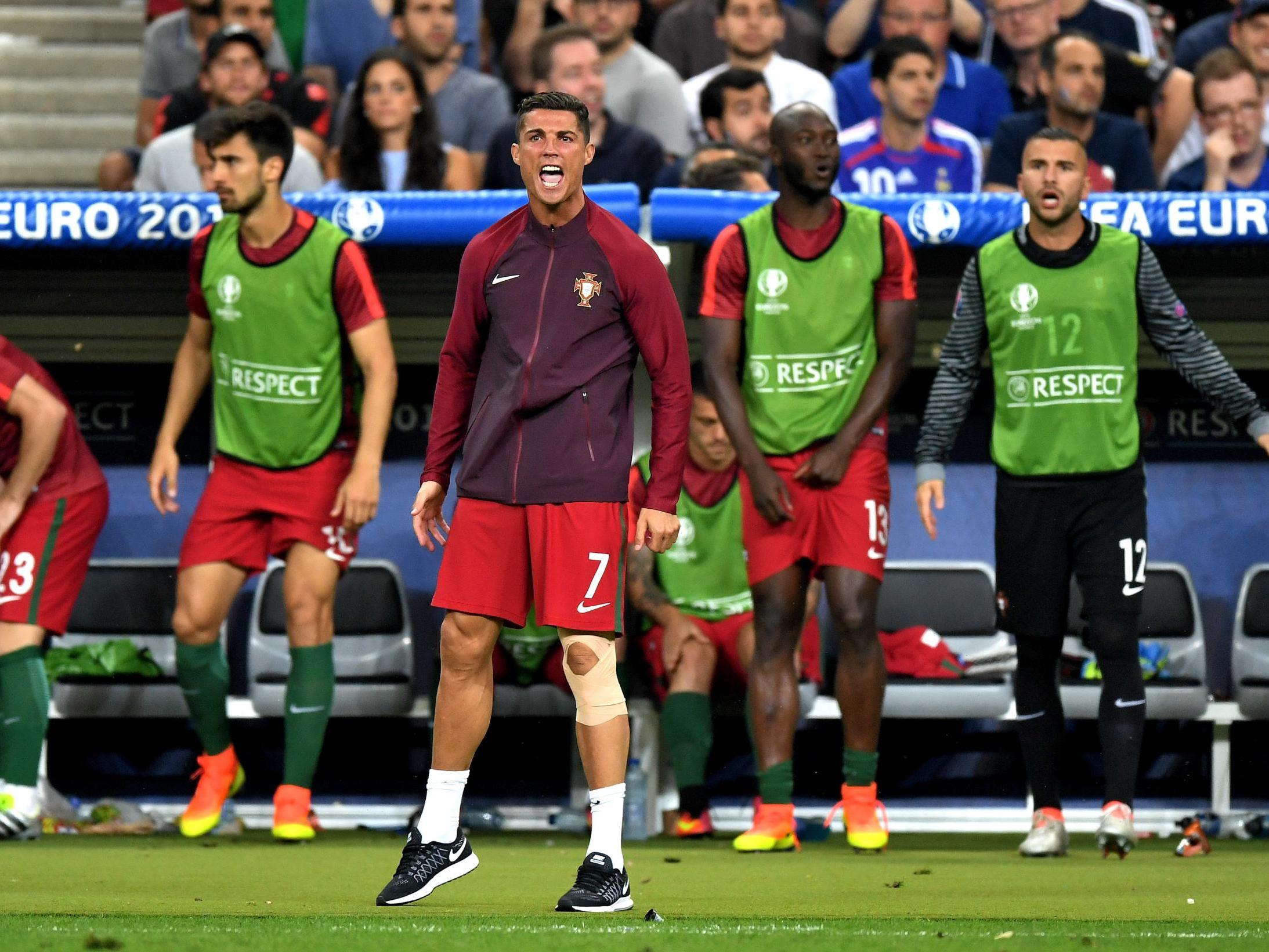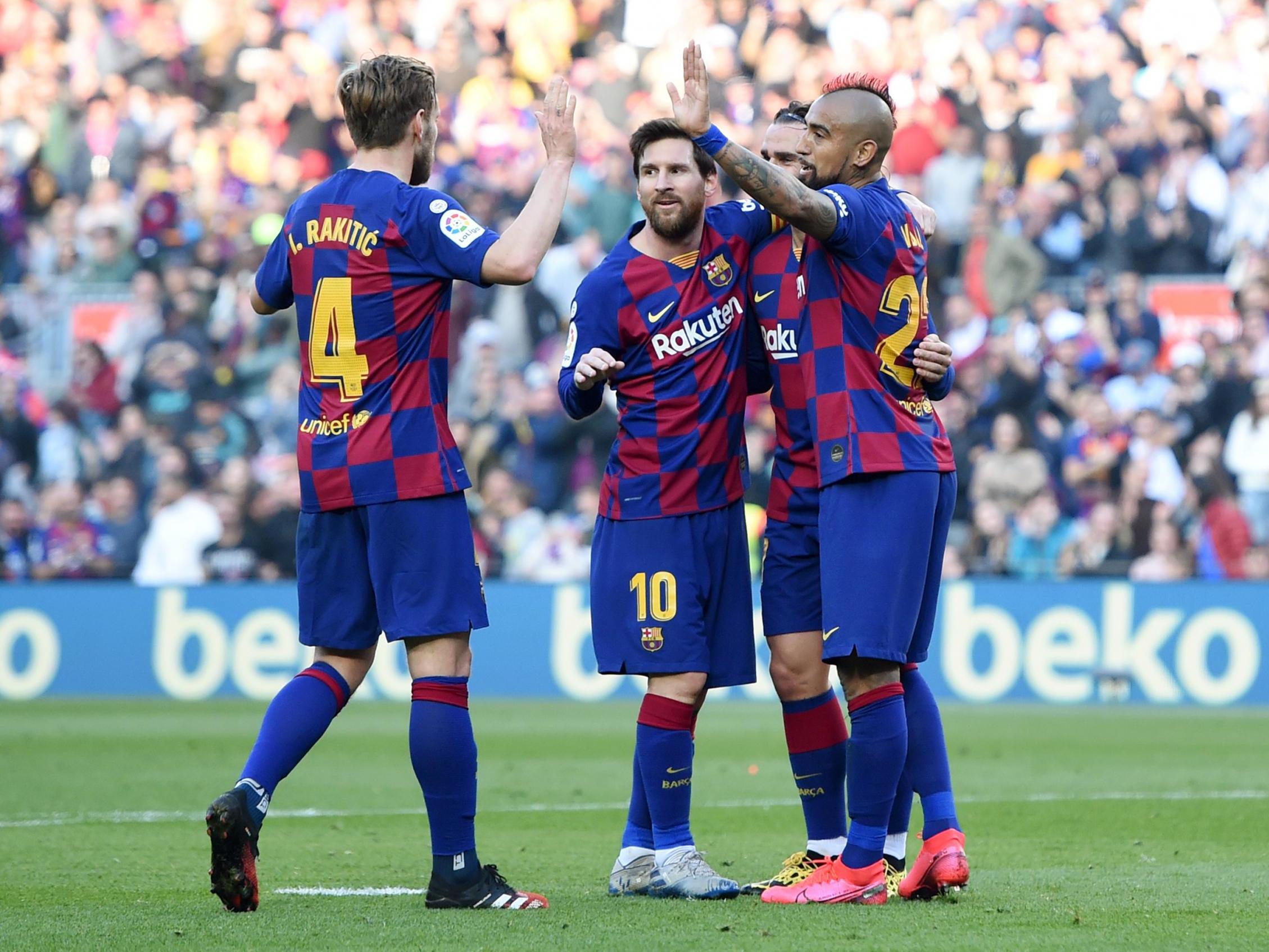‘Michael Jordan would get thrown out of our dressing room’: Why the Last Dance star’s competitive fire wouldn’t fly in modern football
Top level footballers are as fascinated with Jordan as everyone else is but his uniquely driven personality is something they’ve never seen in their own game
Your support helps us to tell the story
From reproductive rights to climate change to Big Tech, The Independent is on the ground when the story is developing. Whether it's investigating the financials of Elon Musk's pro-Trump PAC or producing our latest documentary, 'The A Word', which shines a light on the American women fighting for reproductive rights, we know how important it is to parse out the facts from the messaging.
At such a critical moment in US history, we need reporters on the ground. Your donation allows us to keep sending journalists to speak to both sides of the story.
The Independent is trusted by Americans across the entire political spectrum. And unlike many other quality news outlets, we choose not to lock Americans out of our reporting and analysis with paywalls. We believe quality journalism should be available to everyone, paid for by those who can afford it.
Your support makes all the difference.In the Premier League chat groups, the players have been as engrossed by The Last Dance as anyone else, but there’s one element that has stood out.
Michael Jordan is a personality they are in awe of. He is not, however, a personality they really recognise.
None have experienced that level of competitive ferocity. Even Ian Wright says “Jordan is the most driven individual I’ve ever seen”. And that’s a footballer who came through the school of hardest knocks that was 1980s football, when motivation was generally something closer to industrial bullying than any kind of encouragement.
Most say the closest examples are Roy Keane, maybe Stuart Pearce. “It kind of went with that generation,” one source says.
Keane himself has spent much of the last decade dismissing the modern game as “too soft” and played by “very weak human beings”. “You cannot say a word to them.”
You would wonder how they’d react to regularly being called “garbage”, as Jordan did with Scott Burrell; to getting punched, as Jordan did with Steve Kerr; or just hearing the following mantra and feeling its effects.
“My mentality is to win, at any cost,” Jordan says in a moment of the documentary that has become a meme. “If you don’t live that regimented mentality, then you don’t wanna be alongside of me, because I’m going to ridicule you until you get on the same level as me. And if you don’t get on the same level, it’s going to be hell for you.”
They probably wouldn’t react well. One Premier League coach says that, “if you spoke to them like they did in our day, they’d start crying”.
Keane is also right that football has got softer, but only insofar as its development coaching is more inclusive, and progressive. It is, in short, mentally healthier.
It is also galling to think of the amount of talented players – and potential greats – lost to the game purely because the dominant coaching attitude didn’t suit their personalities.
Perhaps the worst message from Jordan’s career – and one that is made an explicit theme of episode seven – is that bullying is indispensable to greatness.
It would certainly be a terrible thing if any youth coaches took that influence from the programme.
At the same time, this is competitive sport, that inherently comes down to the finest margins, and the limits of performance. Professionals still need to push themselves there.
It is why there remain many parallels with Jordan’s career.

The physical battles with the Detroit Pistons that almost became philosophical duels were mirrored by Pep Guardiola’s Barcelona and Jose Mourinho’s Real Madrid. “Don’t get intimidated.”
The treatment of prospective new signing Toni Kukoc remind of Barcelona forwards’ dismissive comments about Antoine Griezmann before he signed.
The role of Scotty Pippen, and the total subservience of a great player to a greater star, is basically Karim Benzema and Cristiano Ronaldo.
You might notice a trend there. You might also notice that they’re parallels from a few different places.
There can’t really be anyone like Jordan in football because of the different dynamics of the sport, and how much physically bigger it is than basketball. No single player can be as domineering.
There also can’t be many like Jordan full-stop.
This is a key point, which inevitably brings us back to the two key players of the modern era: Lionel Messi and Ronaldo.
To be that relentless with everyone else, you have to be that good. To make it “hell” for everyone, as Jordan puts it, you yourself have to always make it happen.
“Plenty of people try to be that influence in the dressing room,” one figure who has worked at Barcelona tells The Independent, “but it’s only when their own level is incredible that it holds water.
“It removes the ability to argue back. Imagine any player trying to mouth off at Messi. It wouldn’t land at all.”

There is one recent story of an ageing top-level captain who got more and more mentally domineering as his physical powers waned. It didn’t really have any effect. The younger players just gravitated towards the more benevolent senior teammate, who became the truer leader.
“When you’re trying that but just have gradually reducing pace, you just sound like you’re whinging in the dressing room,” one source says. “That’s particularly the case with younger players, who’ll have less experience of you in their heyday.”
It’s not just that the modern player can’t handle it, then. It’s that many won’t have it.
“Jordan would get thrown out of a football dressing room.” That’s also why the example of the two modern totems is instructive.
Ronaldo would superficially seem to be the most like Jordan.
He can be “intolerable in a dressing room”, he can “take the piss out of management” – Ronaldo was never that enamoured with Zinedine Zidane – and has an utter obsession with those who win more.
But that’s the thing: it’s only superficial.
Ronaldo just isn’t a domineering alpha-male in the same way. There isn’t that “fear factor” around him, as Jud Buechler puts it of Jordan. He’s generally too self-absorbed. Sources from Real Madrid say he would work exceptionally hard in training – like no one had ever seen before – but switch off when tactics were discussed.
Ronaldo would be happy so long as he was the centre of attention. In that sense, he simply wasn’t demanding like Jordan or Keane.

The picture from those who know him from the Portuguese national team is even more complicated. That is partly because it’s sometimes underestimated how much of a patriot he is, and how desperate he was to win something for his country. Ronaldo can be more demanding there, but there’s no fear about it. He’s instead seen as “some sort of God”, but also takes on a more paternal role.
He enjoys the company of his countrymen, and speaking his own language. That difference can perhaps be seen in the moments before the Euro 2016 penalty shoot-out with Poland. Ronaldo turns to Joao Moutinho and says: “You hit them well! If we lose, fuck it! You hit them well!”
Contrast it to Jordan with Kerr in the clutch moment of the 1997 NBA Championship final against Utah Jazz. Jordan, hiding his mouth from the cameras, almost conspiratorially tells his teammate to “be ready”. It inspires a comically exaggerated reaction from Kerr, but that’s the point. It’s a hard instruction he didn’t want to fail. With Ronaldo, in a similar moment, it was encouragement.
Messi is predictably described as much more quiet, but that is also the point. He can “kill with one look”. It’s a look that instantly incorporates all of his high standards, and an expectation everyone else should meet them.
All of David Villa, Alexis Sanchez, Griezmann and many others have felt it. Some have adapted. Some haven’t, and really didn’t like it. One former teammate says it can be “quite exhausting”.
But it is only subtly expressed. It is not rule by fear. It’s more a conditioned fear of disapproval.
It’s all much more subtle than Jordan repeatedly telling Burrell “don’t bring that bullshit”.
Messi can get loud, but it’s generally saved for the biggest moments for the club, and often goes beyond the dressing room.
That can be seen in the last few months.
It doesn’t look or sound like Jordan, though. Little in modern football does.
Join our commenting forum
Join thought-provoking conversations, follow other Independent readers and see their replies
Comments